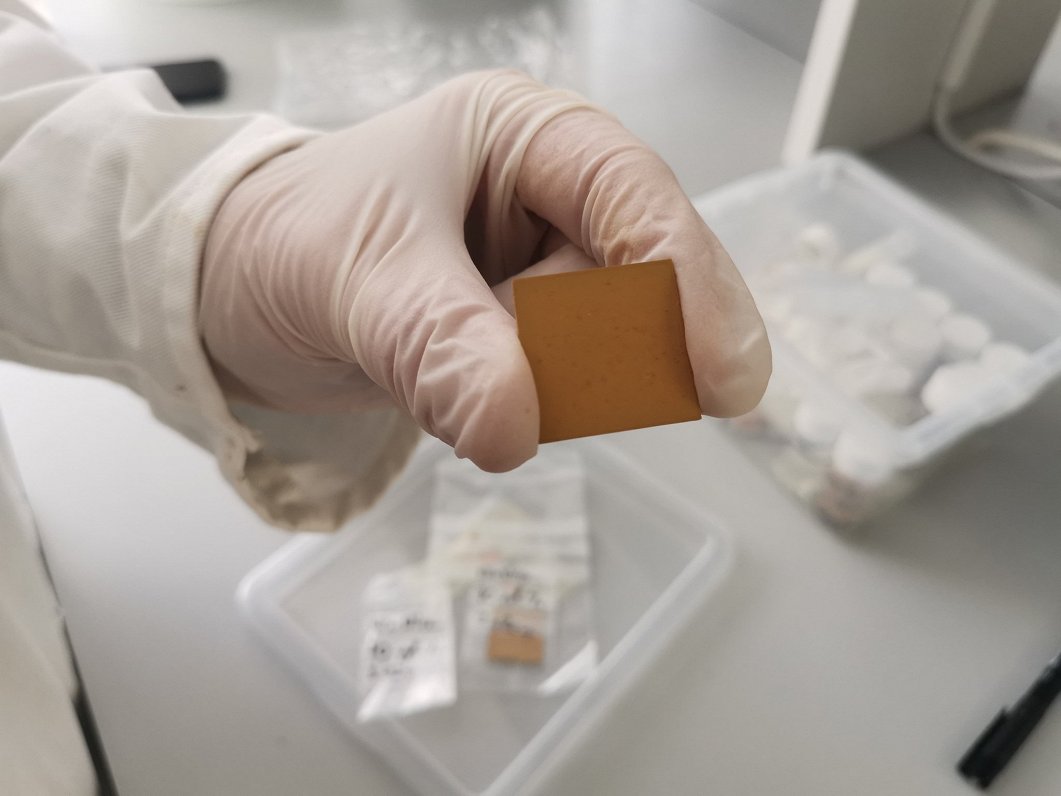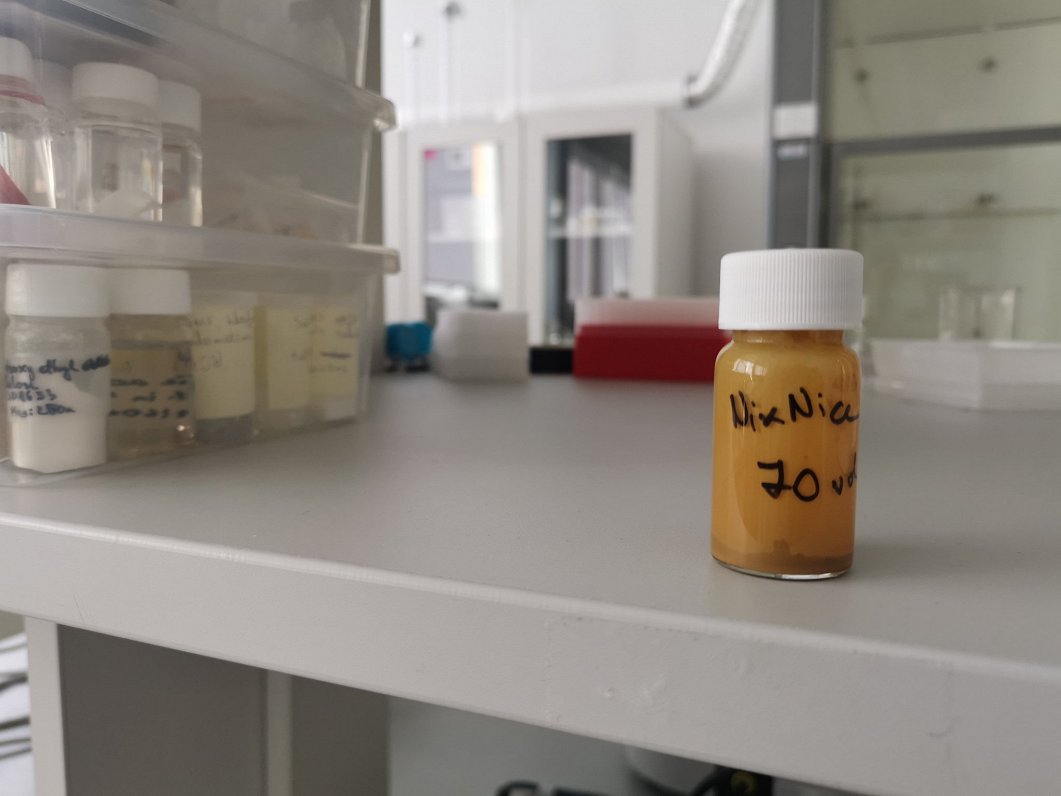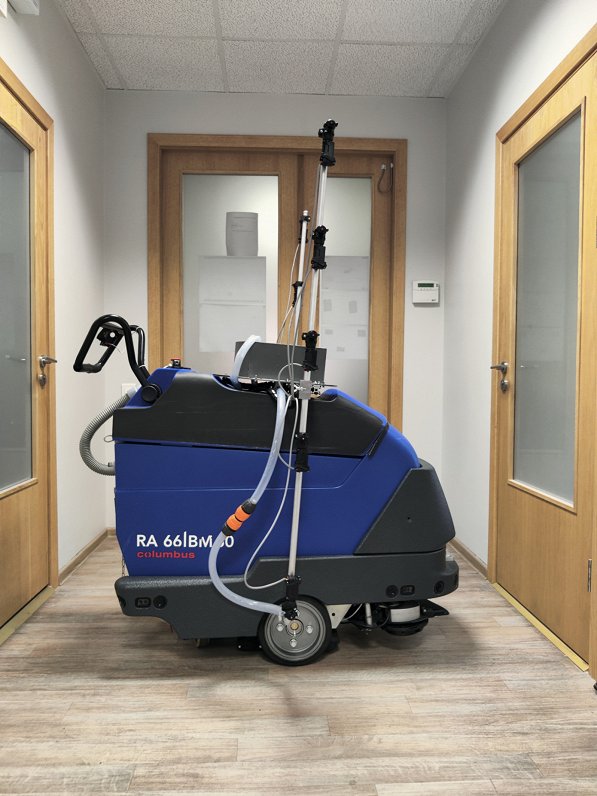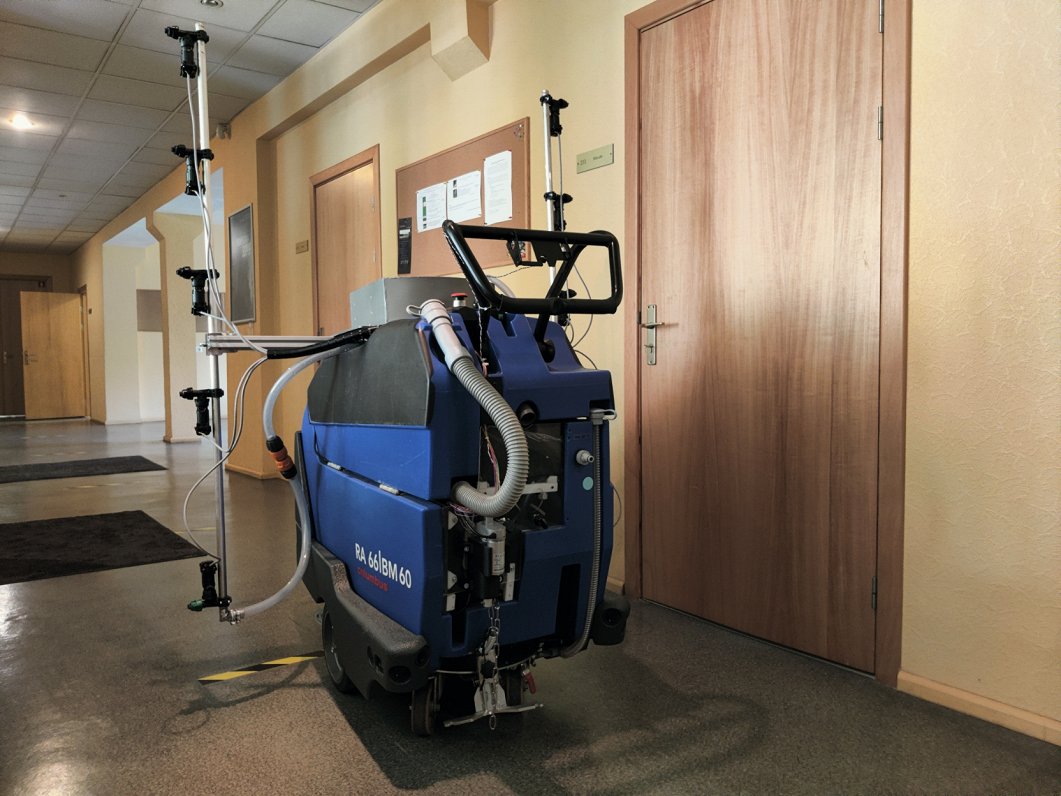Latvian universities and scientific institutes are actively involved in the new state research program for the mitigation of the effects of COVID-19. Rīga Technical University (RTU) is developing new disinfectant devices - robots, sticky coatings, as well as safe e-environmental solutions for remote work and education.
“This is a square sample with coating prepared for antimicrobial tests,” Andris Šutka, head of the RTU Scientific Laboratory for Functional Materials Technology, said showing small samples of disinfectant coating. They contain powder material with antimicrobial properties.

Photo: Sintija Ambote
A small jar with powder inside has the label angry. ” This new material has been nicknamed by laboratory researchers as it aggressively destroys bacteria.

Photo: Sintija Ambote
“The material consists of harmless ions, of calcium and iron, it simply interacts with the humidity in the air and produces OH radicals capable of reacting with organics and destroying bacteria and viruses. And our job, as part of COVID research, is to incorporate this active powdered component into polymeric coating in order to obtain adhesive tapes that could be placed on any surface, handles,” Šutka said.
RTU is also developing a room maintenance robot that sprays disinfectants and can also recognize objects, such as door handles, on which to spray a higher dose.
It is also planned to create disinfectant gates for medical personnel and to develop a room air disinfectant facility with UV lamps that would not harm people if someone is in the same room with this robot.
In another university lab, testing of the effectiveness of all the materials and technologies developed shall take place.

Photo: Sintija Ambote
In the field of information technology (IT), Director of the RTU Information Technology Institute, Professor Janis Grabis, is leading a project where researchers are developing technologies for the development of safe services, as work habits have changed with the crisis. A large part of society uses remote work, e-studies and telemedicine.
“Virtual private networks are being used very extensively, and hackers have discovered that these private networks have different kinds of vulnerabilities. The fact that remote work is now actively being used has increased attacks using spyware, which encrypts data on your computers and, as a result, requires you to pay bitcoins for recovering information. We will create a digital twin for these services, which means that if such services are critical to state and business activity, they should then be accompanied by this high-level testing environment, which will assess how the service would operate in various emergency situations,” explained Grabis.
RTU Science prorector Tālis Juhna estimated that the technologies generated by the national research program will be at a level of readiness by the end of the year so that they can be taken over by a manufacturing or new company.
A total of 10 large projects are being carried out in various universities and scientific institutes, each at around €500 000.





























